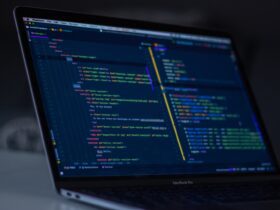Code reviews are an important part of the development process, allowing teams to collaborate to produce quality code. Conducting effective code reviews requires careful planning, clear communication, and a focus on continuous improvement. In this article, we will explore how to create an effective code review process that ensures the production of high-quality code while also increasing collaboration among team members.
What are Code Reviews?
Code reviews are a significant part of software development, where other developers examine written code for quality assurance and improvement. Code reviews help detect errors or vulnerabilities in the software before it is deployed to production. The purpose of code review is to ensure that the final product is secure, high quality, and meets project requirements.
Code reviews come with several benefits, including better code quality, increased collaboration between team members, knowledge sharing among developers, and reducing technical debt. By conducting regular code reviews within a team environment ensures that every developer understands how the system works and its architecture.
Steps of a Code Review
One of the essential steps in conducting an effective code review is to ensure that the developer has completed all necessary documentation. This can include things like comments within the code, test cases, and functional requirements. Having a clear understanding of what needs to be reviewed will help streamline the process and prevent any confusion down the line.
1. Before starting a code review, it is essential to prepare adequately. The developer should review their work thoroughly and ensure that they have covered everything required before submitting the code for review.
2. It’s crucial to determine the scope of the code review beforehand, whether it’s a specific section or an entire project. This can help to focus on specific areas of concern and avoid wasting time on irrelevant parts.
3. Setting up guidelines or standards for the code reviews ensures that everyone involved knows what is expected from them during the process. This includes coding conventions, naming conventions, architectures, and other practices that need to be followed consistently.
4. During a code review, it is important to check for errors and bugs in the code using debugging tools such as debuggers or run-time analysis tools.
5. Once you’ve gone through all the necessary steps above, providing feedback is essential in ensuring effective communication between developers and reviewers alike. Be sure to include both positive feedback as well as constructive criticism where applicable.
6. After reviewing the code and providing feedback, follow-up actions must be taken by developers to address any issues identified during the review process promptly.

Best Practices for Effective Reviews
Effective code reviews are essential for producing high-quality software that meets the requirements of your clients. To conduct an effective code review, you need to follow some best practices. First, establish a checklist or a set of standards that you will use to evaluate the code. These standards should include coding conventions, architectural guidelines, and performance criteria.
Secondly, make sure all team members understand the goals and objectives of the review process. Encourage team members to ask questions and provide feedback during the review process. This will help ensure that everyone is on the same page and understands what needs to be done.
Finally, track progress and document results. Use tools like Jira or GitHub to keep track of issues raised during the review process and follow up on them promptly. Documenting the results of your reviews will help improve future processes by identifying areas where improvements can be made.
Who Should Conduct Code Reviews?
In order to conduct effective code reviews, it is important to consider who should be conducting them. Ideally, code reviews should be conducted by experienced developers who are familiar with the relevant programming language and development practices. This ensures that the reviewer is equipped to identify potential issues and provide actionable feedback.
However, it’s important to note that not all experienced developers are equally suited for conducting code reviews. Developers who have a reputation for being overly critical or confrontational may not be the best fit for this role as they could discourage collaboration and create an unpleasant work environment. On the other hand, those who have strong communication skills and a willingness to mentor others can make great reviewers.
The most effective approach is to establish clear guidelines on who should conduct code reviews within your organization. This ensures consistency in review quality and can help maintain a positive team culture focused on growth and improvement.
Conclusion
In conclusion, conducting effective code reviews is crucial in ensuring the quality and maintainability of a software product. By reviewing code early and frequently, developers can identify and fix issues before they become larger problems that are harder to solve. Code reviews also provide an opportunity for team members to share knowledge and best practices, ultimately improving the overall skillset of the team.
To conduct an effective code review, it’s important to establish clear guidelines for both reviewers and developers. These guidelines should include expectations for what should be reviewed, how feedback should be given, and how issues should be resolved. It’s also important to create a positive culture around code reviews where feedback is constructive rather than critical.



























